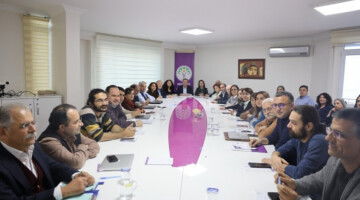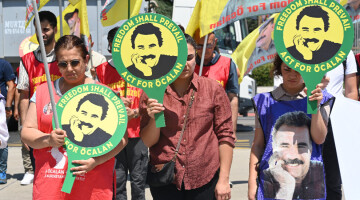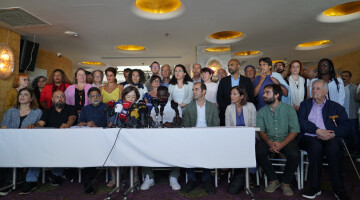Deputies from the Social Democratic Party (SPÖ) deputies submitted a written question asking Foreign Minister Alexander Schallenberg about the government’s stance on the aggravated isolation of Kurdish People's Leader Abdullah Öcalan and the ever-worsening situation in Turkey’s prisons.
The government response said that the Austrian Foreign Affairs is worried about human rights violations in Turkey and Austria has taken a stand for halting EU membership negotiations with Turkey since 2016. It added that Turkey’s decision to withdraw from the Istanbul Convention was slap in the face to those struggling against violence against women.
CPT REPORT ON ÖCALAN
Austria has asked for the CPT to publish all its reports on its inspections conducted in Turkey since 2016, the response said and pointed out that Turkey is obliged to abide by all the decisions made by the Council of Europe (CoE).
The Austrian government pointed to a 2019 CPT report on the isolation of Kurdish leader Abdullah Öcalan, which raised serious concern over the denial of Öcalan's access to lawyers and family members which remained in force even after the state of emergency was lifted in 2018.
DEMİRTAŞ SHOULD BE RELEASED
The Austrian government said it had criticized the use of "anti-terror laws" in Turkey against opposition groups several times before.The government response reminded that the Austrian Foreign Affairs had urged Turkey to release former co-chair of the pro-Kurdish Peoples’ Democratic Party (HDP) Selahattin Demirtaş based on the ECtHR ruling on December 23, 2020. Similar requests were also expressed for the Osman Kavala case.
The Austrian government pointed out that the freedom of the press in Turkey has regressed in recent years, and the issue of jailed journalists is closely monitored by the EU countries. It added that the human rights issues in Turkey are also frequently discussed within the EU, CoE, UN and the Organization for Security and Cooperation in Europe (OSCE).













